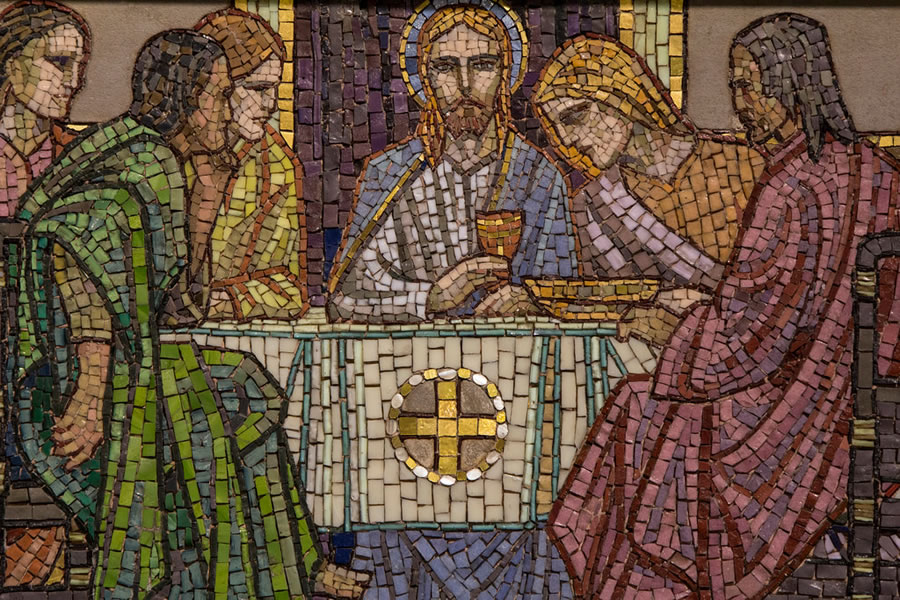Blog & Pastor Letters

The Catholic Christian and the Body of Christ
06-06-2021Weekly ReflectionRev. Victor C. YakubuI have visited several Catholics in private homes, hospices, and hospitals in need of the anointing of the sick and communion in my priestly practice. In discussing the Catholic faith with them, they always tell me, ‘Jesus is important to me.’ The sacraments of the anointing of the sick and Holy Communion bring Jesus to those in need of God’s presence especially when sick and cannot attend Mass. While anointing brings healing to their souls, the Eucharist strengthens them to bear the pains of suffering.
The desire to receive Holy Communion is a serious one for any Catholic who is unable to attend Mass on Sunday or the weekdays. This is the reason why the Church made a provision for lay Eucharistic ministers. The Eucharistic ministers are a group of lay men and women who do a good job of bringing Holy Communion to the sick and the aged. The Church recognizes their work as extraordinary ministers of the Eucharist and truly counts on their service.
The celebration of the Most Holy Body and Blood of Christ is a reminder to all Catholics of the importance of Holy Communion. What we receive in the Church is the true body and blood of Christ under the species of bread and wine. The words of consecration by the priest change the substances of bread and wine into the Body and Blood of Christ. This process is called ‘transubstantiation.’
In the gospel, Jesus broke the bread and gave it to his disciples saying, “Take it, this is my body.” He did the same with the cup after blessing it, and said, “This is my blood of the covenant, which will be shed for many.” The instruction to the Church is simple, “Do this in memory of me.” The Catholic Church, therefore, has taken this mandate very seriously, by celebrating the Eucharist as a memorial of the Lord’s Passover.
The Eucharist has brought about the sacred order of the priesthood, in which men are called to the ordained priestly ministry purposely for service in the Church. Every priest brings the memories of the last supper to reality by blessing the congregation with the presence of Jesus. Receiving communion keeps us closer to the source of our Christian joy, Jesus himself. It is important we receive communion at Mass and refresh our spirituality with his presence as we continue the activities of our lives.
Moses encouraged the people of Israel in their journey to the Promised Land with constant reminders of the presence of God. He used blood of goats and rams to seal the covenant between Israel and God. He said to the people, “This is the blood of the covenant that the Lord has made with you in accordance with all these words of his.” In this new covenant, Jesus has paid the prize with his own blood through his death on the Cross of Calvary. We no longer need to use the blood of goats and rams to offer sacrifices for cleansing, rather, Jesus has done that for us. The second reading says, Jesus “offered himself unblemished to God” to clean our consciences from dead works so that we serve God, the living God.
I believe that the Eucharist offers us the opportunity to meet Jesus on a personal basis. In the Catholic Church we are privileged to continue with this tradition. It is important we respect this tradition and meditate on the presence of Jesus in our individual lives. When we receive communion, it should spur us to talk to Jesus as our friend who is ready to assist us in our journeys just like Moses did in leading the Chosen People of God. As Catholics who love Jesus, we should make it a point of duty to attend Mass and receive communion.
The Teresa of Avila in her book, Interior Castle, encouraged Christians to develop a relationship with Jesus through ‘the interior castles’ of their souls. She wrote, “Just as His Majesty has a room of his own in heaven, so he has a special place inside the soul where he alone dwells.” For me, the reason why I enjoy visiting the sick and the aged is because I connect these souls to Jesus whom they love. I am only vessel in the hands of God for anointing and administering communion that fills that empty spot. The Catholic Christian is the one who loves Jesus and seeks him as a friend. And what are friends for if they cannot help each other? Keep praying!
BACK TO LIST